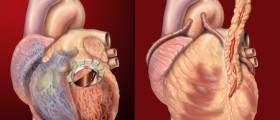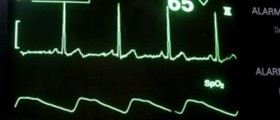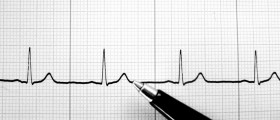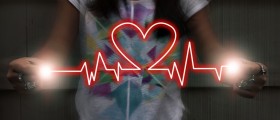
Tachycardia
The beating of our heart can indicate our overall health. Restingheart rate is measured in a period of inactivity or during the sleep and inadults it usually ranges from 60 to 100 bpm (beats per minute). When the heart rategoes beyond 100bpm, doctors call this condition high resting heart rate ortachycardia.
Patients suffering from tachycardia often have other problemsassociated with their condition. Their heart is not efficient enough, sodifferent organs and parts of the body may suffer from inadequate blood supply.Many of these people complain about: rapid pulse, breathing problems, chestpain and heart palpitations. Common problems are also lightheadedness,fainting and dizziness. Patients may notice one or more of these symptoms asthe consequence of their high resting heart rate. In that case, consulting the doctoris always the best option.
Causes and Treatment of Tachycardia
Tachycardia is often caused by abnormalities in timing mechanismof electrical signals going through the heart or by some lifestyle factors ofthe specific patient. If this is something happening occasionally, it shouldn’tbe reason to worry. However, consistent tachycardia is serious problem andconsequences might be cardiac arrest, stroke or even death.
Congenital heart defects, heart disease, electrolyteimbalance, high blood pressure and hyperthyroidism are conditions oftencharacterized by high resting heart rate. Apart from these, people who smokeand drink large quantities of alcohol and caffeine may also notice tachycardiaas the consequence of their lifestyle. Consumption of different recreationaldrugs (cocaine or some other) may also lead to high resting heart rate. In somecase, tachycardia may be provoked by medications or can be reaction to extremestress and anxiety.
Pregnant women often have resting heart rate higher thannormal. This problem is considered to be provoked by the fact that the body andthe heart of a mother now need to support growing fetus. In pregnancy, doctorsfound resting heart rate about 85bpm to be normal. The problem arises if restingheart rate goes over 100bpm. If this condition becomes consistent this mightindicate some medical condition that should be treated. For that reason, awoman experiencing palpitations (resting heart rate over 100bpm) should visither gynecologist and consult him or her about the problem.
Tachycardia caused by lifestyle factors is usually correctedthrough healthy lifestyle changes. The person should quit smoking and limitconsumption of alcohol and caffeine. Other than that, tachycardia is treatedwith medications and electroconversion methods.

















Your thoughts on this
Loading...